 |
We all want the complicated world we live in to make sense. So we tell ourselves stories to fill in the gaps of what are effectively blind spots.
|
199 |
 |
The illusion of control is more persuasive than the reality of uncertainty. So we cling to stories about outcomes being in our control.
|
200 |
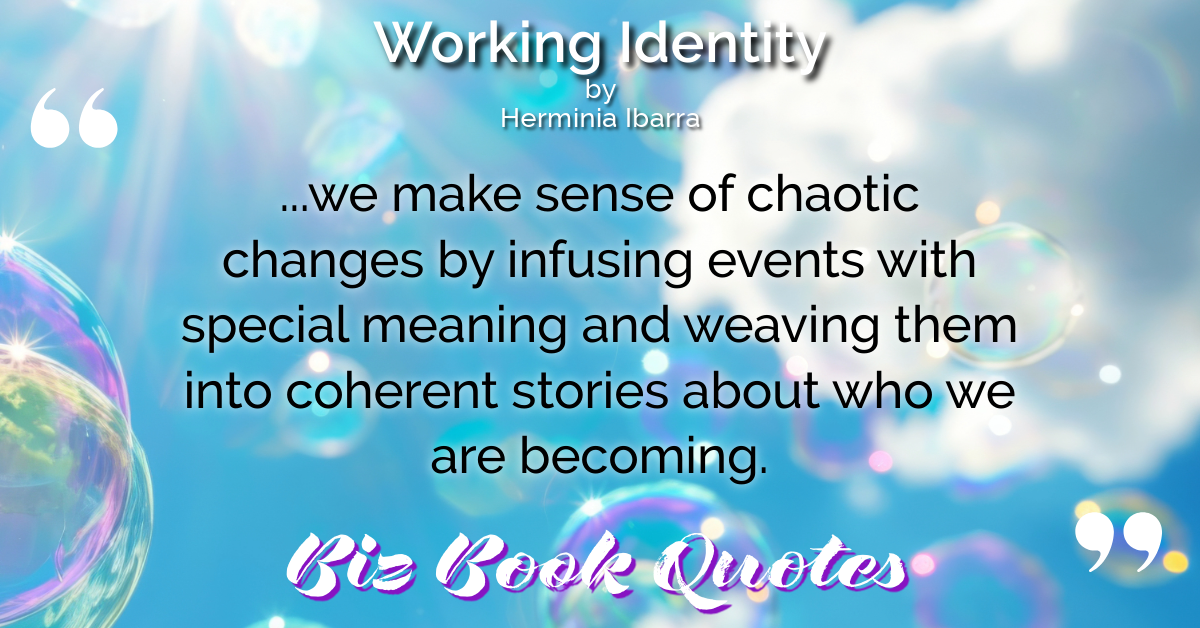 |
…we make sense of chaotic changes by infusing events with special meaning and weaving them into coherent stories about who we are becoming.
|
134 |
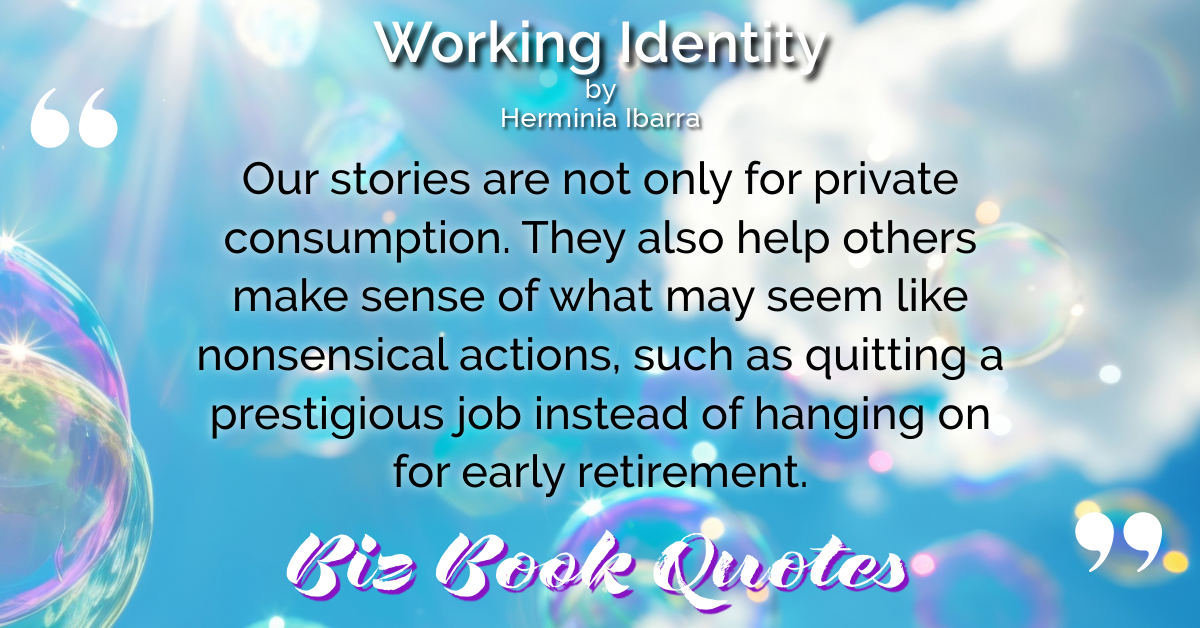 |
Our stories are not only for private consumption. They also help others make sense of what may seem like nonsensical actions, such as quitting a prestigious job instead of hanging on for early retirement.
|
140 |
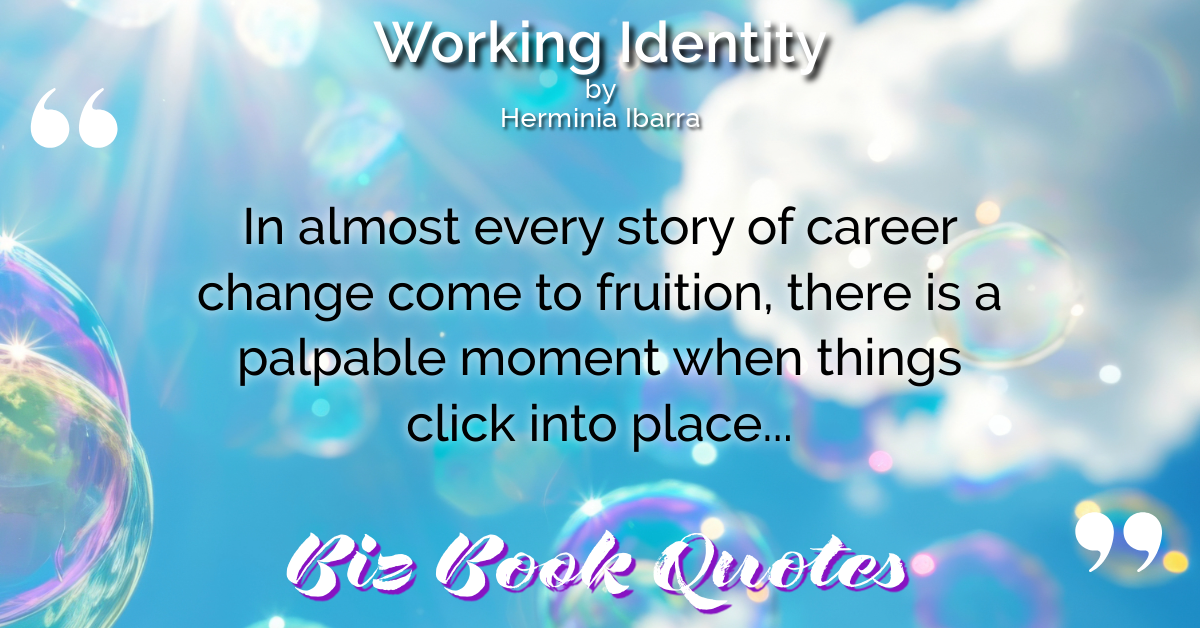 |
In almost every story of career change come to fruition, there is a palpable moment when things click into place…
|
146 |
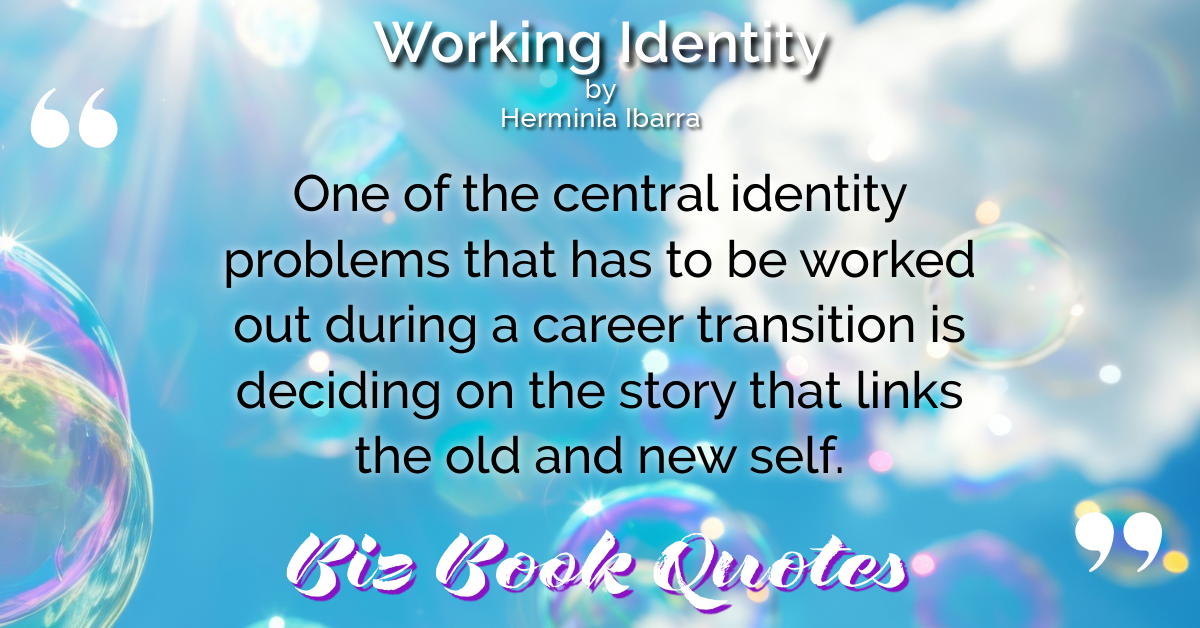 |
One of the central identity problems that has to be worked out during a career transition is deciding on the story that links the old and new self.
|
156 |
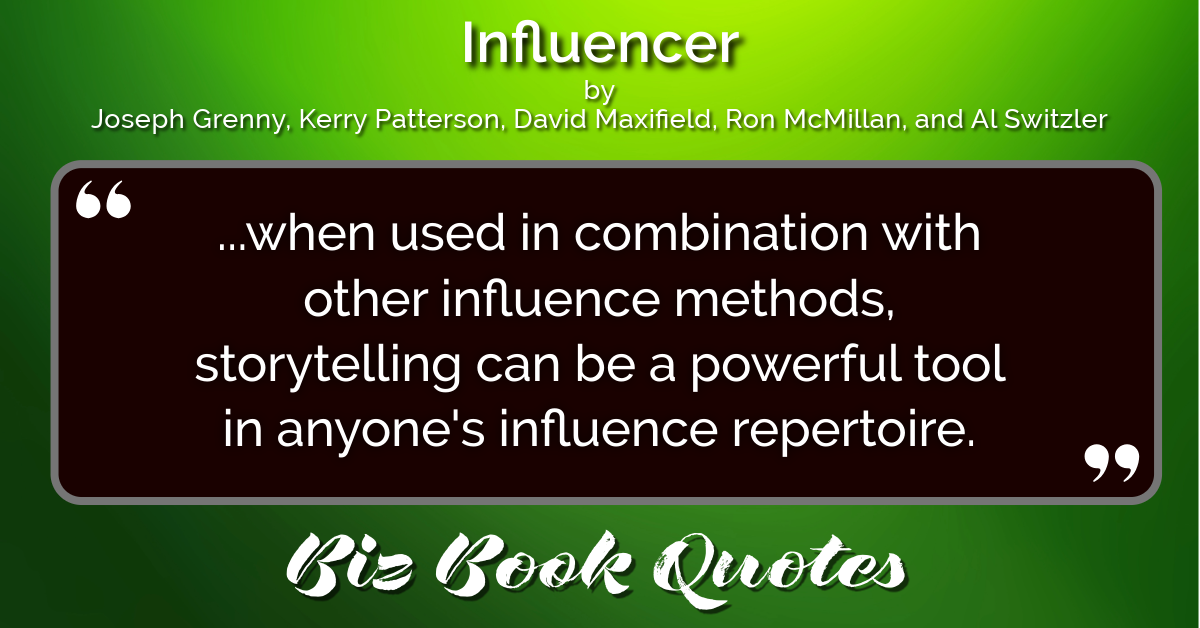 |
…when used in combination with other influence methods, storytelling can be a powerful tool in anyone’s influence repertoire.
|
103 |
 |
…when people predict that their actions will lead to catastrophic results, these failure stories lead to self-defeating behavior.
|
131 |
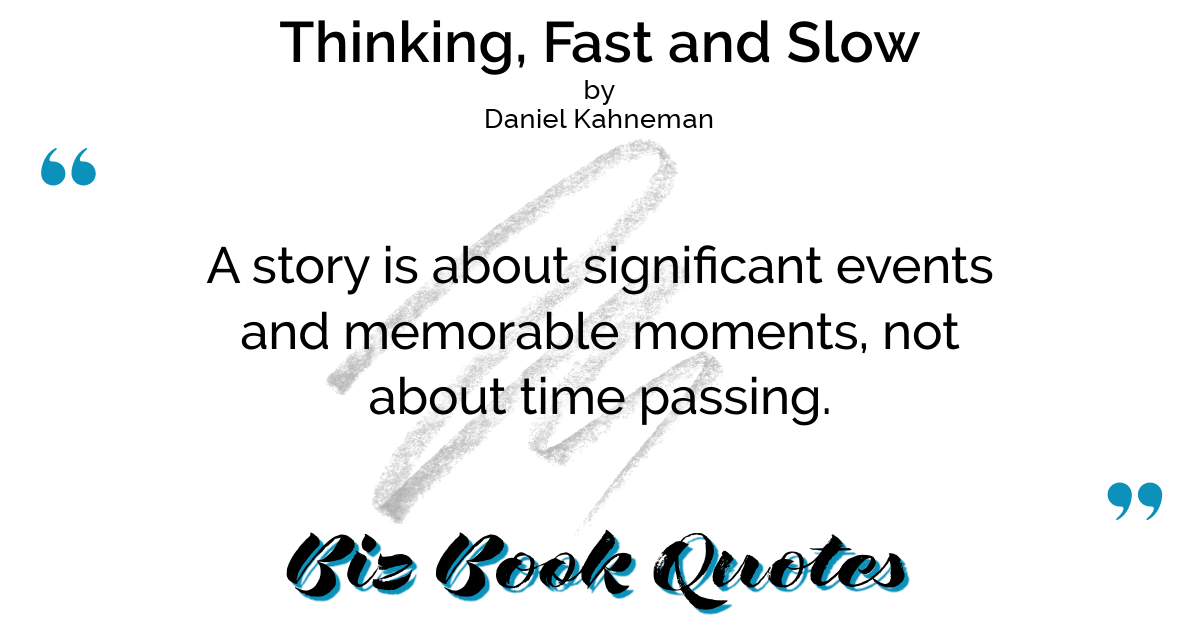 |
A story is about significant events and memorable moments, not about time passing.
|
387 |
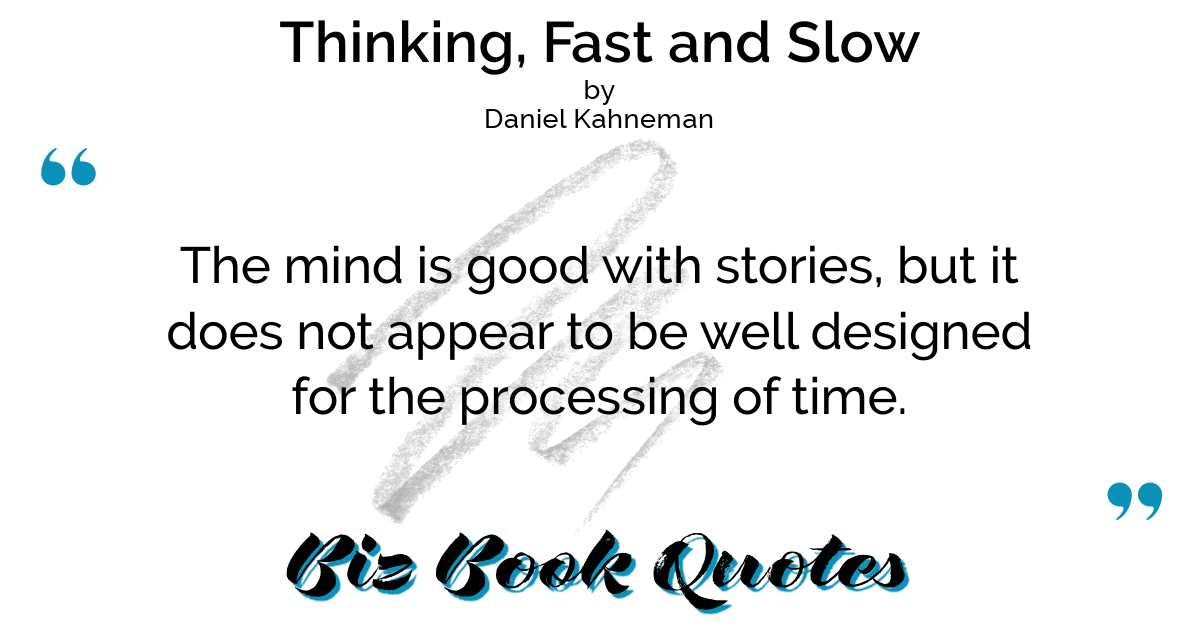 |
The mind is good with stories, but it does not appear to be well designed for the processing of time.
|
407 |